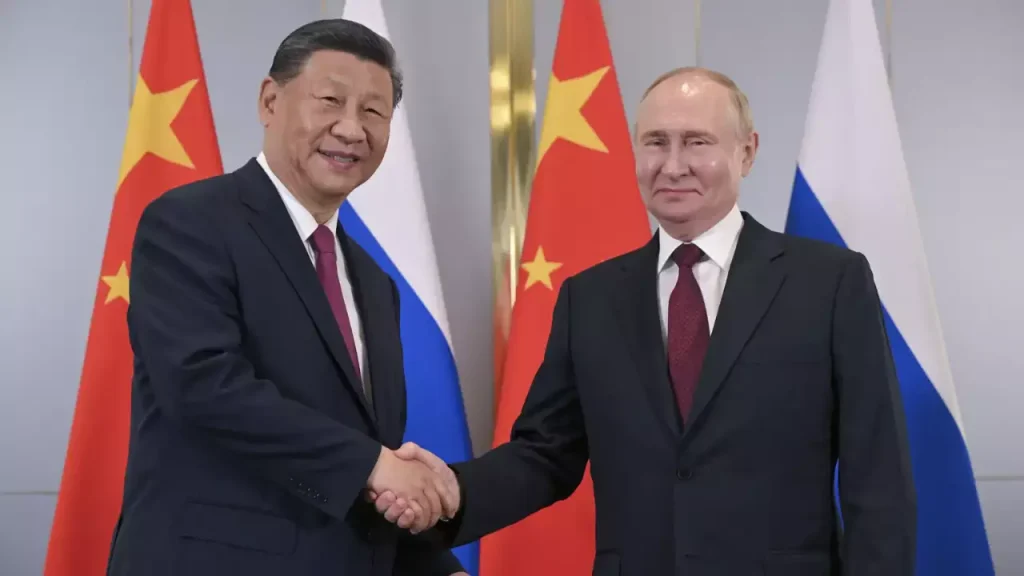Chinese President Xi Jinping and Russian President Vladimir Putin have called on their allies to resist external influences, asserting that global power dynamics are shifting and a multipolar world is emerging.
The two leaders met in Astana, Kazakhstan, for a summit of the Shanghai Cooperation Organisation (SCO), which they regard as a counterbalance to U.S. dominance on the world stage. During the meeting, Xi urged nations to “resist external interference,” while Putin pointed out the rise of “new centres” of political and economic power.
Xi emphasized the need for countries to unite against external pressures, stating, “We should join hands to resist interference, firmly support each other, and safeguard each other’s concerns. We must take control of our future and the destiny of our nations, as well as regional peace and development.”
He also stressed the importance of the SCO aligning itself with principles of fairness and justice. A joint declaration by the Kremlin acknowledged the “tectonic shifts in global politics” and called for the SCO to enhance its role in global and regional security.
The declaration noted increased use of force, systematic violations of international law, rising geopolitical tensions, and escalating risks to stability within the SCO region. It also called for an “early, complete, and sustainable ceasefire” in Gaza and a comprehensive resolution to the Palestinian issue.
While the statement did not directly address Russia’s invasion of Ukraine or China’s tensions with Taiwan, it affirmed mutual respect for the sovereignty, independence, and territorial integrity of states.
Advocating for a Just World Order
Both Russia and China have consistently criticized what they view as U.S. dominance in global affairs, seeking to bolster their influence, especially in neighboring regions. Putin remarked at the summit, “The multipolar world has become a reality,” celebrating Belarus’s accession as the tenth member of the SCO.
He asserted, “The circle of states advocating for a just world order and prepared to defend their legitimate rights and traditional values is expanding. New centres of power and economic growth are emerging.”
Iran, under Western sanctions, became a full member of the SCO last year. UN Secretary-General Antonio Guterres was also at the summit, marking his visit to Central Asia.
Founded in 2001, the SCO has gained prominence in recent years. Its full members now include India, Iran, Kazakhstan, Kyrgyzstan, Uzbekistan, Pakistan, Tajikistan, and China, Russia, and Belarus. The organization aims to foster cooperation as a counterweight to Western influence, focusing on security and economic collaboration, particularly in Central Asia, which accounts for 40% of the global population and around 30% of global GDP.
However, the SCO faces internal divisions, including territorial disputes. Russia’s invasion of Ukraine has intensified interest from major powers in Central Asia, where Moscow seeks to retain its traditional influence. At the same time, China strengthens ties through its Belt and Road Initiative.
The bloc’s final declaration criticized the “unilateral and unrestricted build-up” of missile defense systems by unnamed countries and regional alliances, a recurring grievance for both Moscow and Beijing aimed at the United States.




